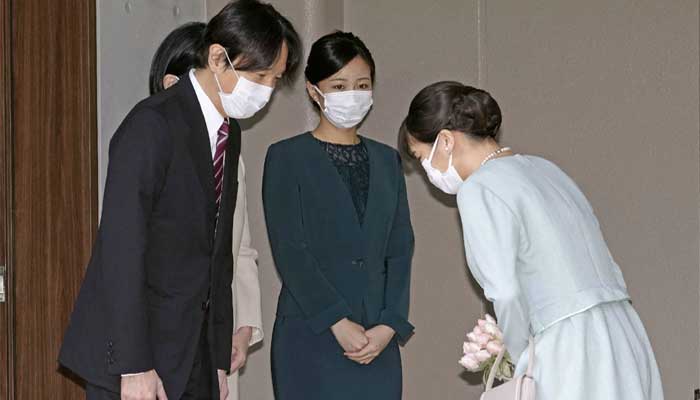Princess Mako gives up her royal title, marries university sweetheart Kei Komuro
The princess, holding a small bouquet of pale pink flowers, bid farewell to her family -- bowing to her parents and the press, and hugging her sister.
October 26, 2021

Tokyo: Japan´s Princess Mako married her university sweetheart on Tuesday, giving up her title in a union bereft of traditional extravaganza, with the couple reportedly planning a move to the United States.
Women in the imperial family cannot ascend the Chrysanthemum Throne, and lose their royal status when they marry a commoner.
Emperor Naruhito´s 30-year-old niece Mako is no exception as she weds Kei Komuro, who is the same age and works for a US law firm.
Since announcing their engagement in 2017, the couple has faced tabloid scandals over reports his family had run into financial difficulties.
But after years of delays, the pair have finally married -- albeit with no wedding ceremony, reception banquet or any of the traditional elaborate rites -- opting to do so privately, away from a public that has not always been kind.
Mako has also turned down a large payment usually offered to royal women on their departure, reportedly up to 153 million yen ($1.35 million).
Japanese royals are held to exacting standards and Mako has developed complex post-traumatic stress disorder because of the media attention, according to the Imperial Household Agency.
A household official told AFP the marriage papers had been "filed and accepted" after TV footage showed her leaving the Akasaka Imperial Residence in the morning.
The princess, holding a small bouquet of pale pink flowers, bid farewell to her family -- bowing to her parents and the press, and hugging her sister.
Despite the negative press coverage and vicious online sniping, many Japanese say they support the marriage.
"The most important thing is that she is happy," said Tokyo resident Machiko Yoshimoto, in her 60s.
"Certainly, it would have been better to have a festive atmosphere, instead of this difficult situation, which is rather sad and regrettable," Shigehiro Hashimoto, 54, told AFP.
In a survey by the Yomiuri Shimbun daily, more than half of respondents said they thought the marriage was a good thing, against 33 percent who did not.









